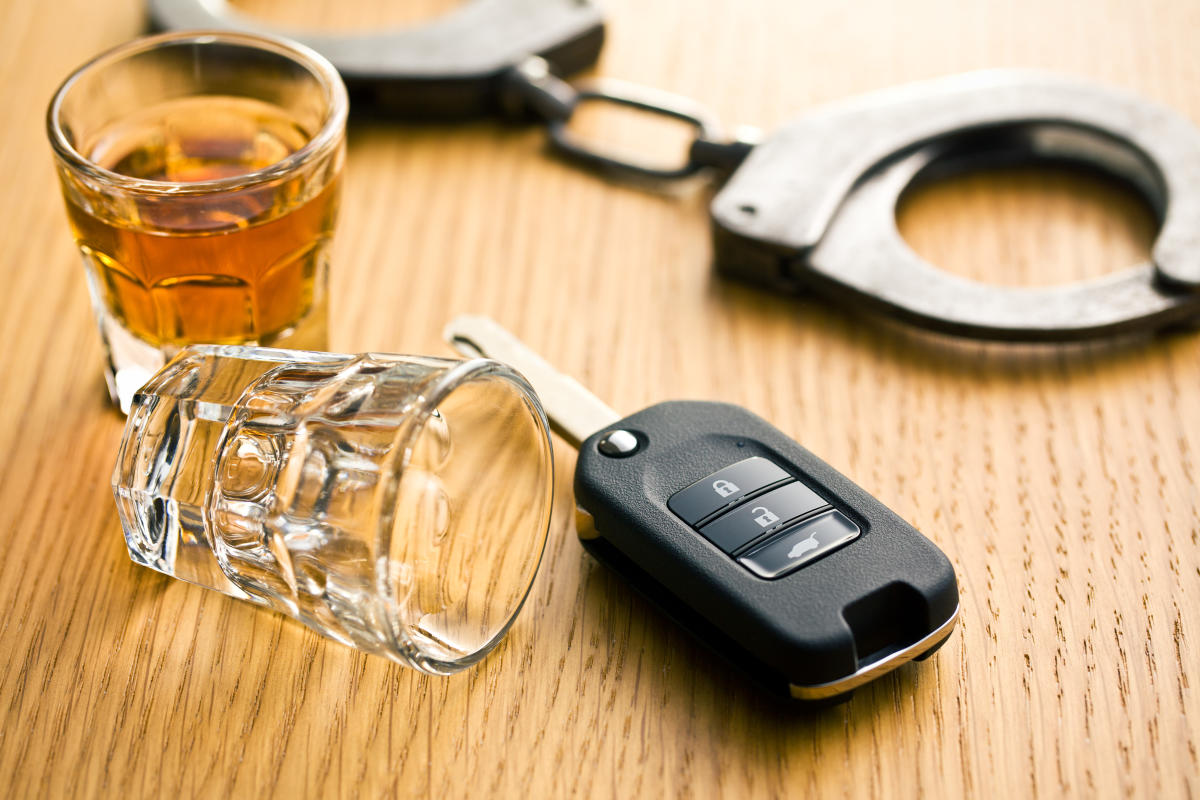Driving under the influence (DUI) is a serious crime in the United States. In 2019, there were approximately 10,142 fatalities caused by alcohol-impaired driving, accounting for 28% of all traffic-related deaths in the United States.
The penalties for DUI convictions can vary, depending on the state and the circumstances of the offense, but they can include fines, license suspension, community service, and jail time. If you are facing DUI charges, it is important to understand the different defenses that may be available to you.
To help you understand your options and start planning your defense, here’s an overview of some of the most common defenses used in DUI cases.
Defenses Based on the Officer's Conduct
If you were pulled over and arrested for DUI, one potential defense is to argue that the arresting officer's conduct was improper. There are several ways an officer's conduct can be challenged, including the following:
Burden of Proof for Defense
The burden of proof for the defense is to show that the officer's conduct was improper.
Some of the ways an officer's conduct can be challenged include:
Illegal Stop
If the officer did not have a valid reason to pull you over, any evidence gathered as a result of the stop might be suppressed. For example, if you were stopped for weaving within your lane but did not violate any traffic laws, the stop may be considered illegal, and any charges resulting from the stop may be dismissed.
Improper Field Sobriety Tests
The results might be inadmissible in court if the officer conducted field sobriety tests improperly. Field sobriety tests include:
Walking in a straight line.
Standing on one foot.
Following a pen with your eyes.
Improper Breathalyzer Test
Breathalyzer tests commonly measure blood alcohol content (BAC) levels. If the breathalyzer test is incorrectly calibrated or administered, the results may be challenged. Additionally, if the officer did not observe you for a period of time before administering the test, the results may be challenged.
Burden of Proof for Prosecution
The prosecution has the burden of proving that the officer's conduct was proper. They may do this by interviewing witnesses, viewing camera footage, and listening to recordings taken by the officer.
Defenses Based on Medical Conditions
Another potential defense for DUI charges is to argue that a medical condition caused the symptoms of impairment that the officer observed. Some medical conditions that may cause similar symptoms to those of alcohol impairment include:
Burden of Proof for Defense
The burden of proof for the defense is to show that the medical condition or medication caused the symptoms of impairment.
Some common illnesses and medications that can lead to issues when driving include the following:
Diabetes
Diabetes can cause symptoms such as dizziness, confusion, and slurred speech. These symptoms may lead a police officer to think the driver is drunk when they may actually be having a medical emergency.
Inner Ear Problems
Inner ear problems can cause difficulty with balance, which may be mistaken for impairment. Issues like this may lead drivers to fail field sobriety tests, leading to a DUI charge. However, by proving that you have inner ear problems that caused you to fail the test, you may be able to have your charges reduced or dismissed.
Prescription Medications
Certain prescription medications can cause drowsiness, confusion, and other symptoms that may be mistaken for impairment.
Burden of Proof for Prosecution
The prosecution has the burden of proving that a medical condition did not cause the symptoms of impairment. This may include calling the defendant to testify and interviewing expert witnesses.
Defenses Based on Rising Blood Alcohol Content
If you were not intoxicated at the time you were driving but were over the legal limit when you were tested, you might be able to argue that your blood alcohol content was rising at the time of the test. The argument is that you were not intoxicated when driving, but your BAC was increasing as alcohol was being absorbed into your bloodstream.
The rate of alcohol absorption into the bloodstream can vary based on several factors, including the type of alcohol consumed, the amount of food in the stomach, and the rate of alcohol metabolism. If you were stopped by law enforcement shortly after having a drink or stopped by law enforcement but waited a significant amount of time before taking a breathalyzer test, your attorney may be able to argue that your blood alcohol level was not above the legal limit at the time you were driving.
Burden of Proof for Defense
The defense has the burden of proving that the defendant's blood alcohol level was below the legal limit when driving and that it rose to an illegal level after they were stopped by law enforcement.
Burden of Proof for Prosecution
The prosecution must prove that the defendant's blood alcohol level was above the legal limit while driving beyond a reasonable doubt.
Constitutional Violations
Whether you’re guilty or not, you have constitutional rights and protections. If a police officer violates your constitutional rights when making an arrest, you may be able to get your charges reduced or dismissed entirely.
Burden of Proof for Defense
The defendant must prove their constitutional rights were violated to use this defense successfully.
Some common violations include the following:
Not reciting the Miranda warning during the arrest
Not obtaining a warrant
Coercing the defendant into confessing
Illegally seizing evidence from the defendant’s vehicle
Not allowing the defendants to contact their lawyer after being arrested
Constitutional violations can happen before, during, and after the arrest. Defendants should talk to their attorneys to discuss the details surrounding their arrest and identify any potential violations.
Burden of Proof for Prosecution
If the defense alleges their rights were violated, the prosecution must prove that the officer(s) behaved appropriately and respected the defendant’s rights. This may involve using bodycam footage to prove that the officers informed the defendant of their rights, interviewing officers, and interviewing the defendant to establish a consistent version of events.
What’s The Difference Between a Court-Appointed Public Defender and a DUI Attorney?
If you are facing a DUI charge, you may wonder whether to hire a private DUI attorney or rely on a court-appointed public defender. A public defender is a lawyer appointed by the court to represent defendants who cannot afford to hire an attorney themselves. While public defenders are experienced lawyers, they often have a large caseload and may not have the same level of experience in DUI cases as a private DUI attorney.
On the other hand, a DUI attorney is a private attorney who specializes in DUI cases. They have experience and expertise in defending individuals accused of DUI and can provide more personalized attention to your case. A private DUI attorney can also offer more flexible payment arrangements, as well as potentially more resources to dedicate to your case.
While hiring a private attorney is generally a better option, it can be very costly, making it a less accessible choice.
It is important to note that the decision of whether to hire a private DUI attorney or rely on a court-appointed public defender ultimately depends on your individual circumstances, such as your financial situation and the complexity of your case. However, if you have the means to hire a private DUI attorney, it may be worth considering in order to ensure that you receive the best possible defense.
Legal Resources for Defendants
If you are facing charges of driving under the influence, it is important to seek legal advice from a qualified attorney as soon as possible. DUI penalties can range from fines and license suspension to prison time, so it’s important to start building your defense quickly.
Below are several resources available to defendants seeking legal advice.
National Association of Criminal Defense Lawyers (NACDL)
The National Association of Criminal Defense Lawyers (NACDL) is a non-profit organization dedicated to protecting the constitutional rights of individuals accused of crimes. The NACDL provides a directory of criminal defense lawyers across the United States, as well as a list of resources for defendants, such as a “Know Your Rights” booklet and information on post-conviction relief. The NACDL also offers a variety of webinars, seminars, and events for criminal defense lawyers to enhance their skills and knowledge.
Visit: https://www.nacdl.org/.
LawHelp.org
LawHelp.org is a website that provides free legal information and resources to low-income individuals. The website offers a directory of legal aid organizations by state, as well as information on various legal topics, including criminal law. LawHelp.org also provides a variety of self-help resources, such as forms and guides, to assist individuals in navigating the legal system.
Visit: https://www.lawhelp.org/.
The American Bar Association (ABA)
The American Bar Association (ABA) is a voluntary bar association that provides resources and support to lawyers and law students across the United States. The ABA offers a variety of resources for defendants, such as a “Find Legal Help” directory and information on various legal topics, including criminal law. The ABA also offers a lawyer referral service, which can connect individuals with qualified attorneys in their area.
Visit: https://www.americanbar.org/
Step into the world of Expertise.com, your go-to hub for credible insights. We don't take accuracy lightly around here. Our squad of expert reviewers, each a maestro in their field, has given the green light to every single article you'll find. From rigorous fact-checking to meticulous evaluations of service providers, we've got it all covered. So feel free to dive in and explore. The information you'll uncover has been stamped with the seal of approval by our top-notch experts.





